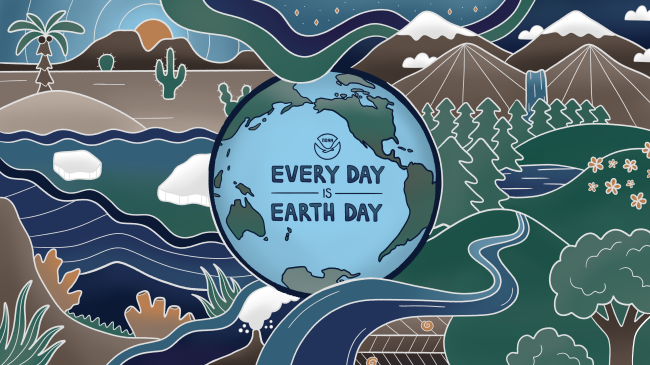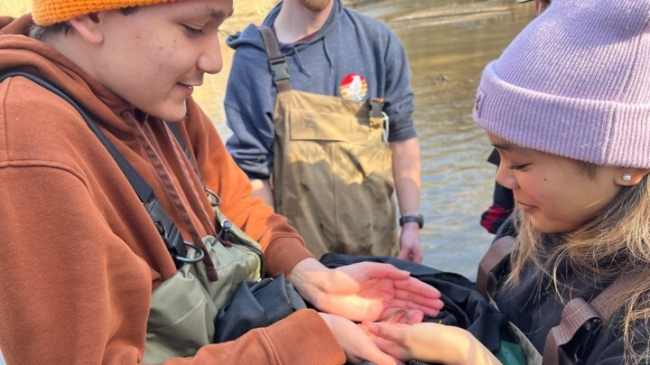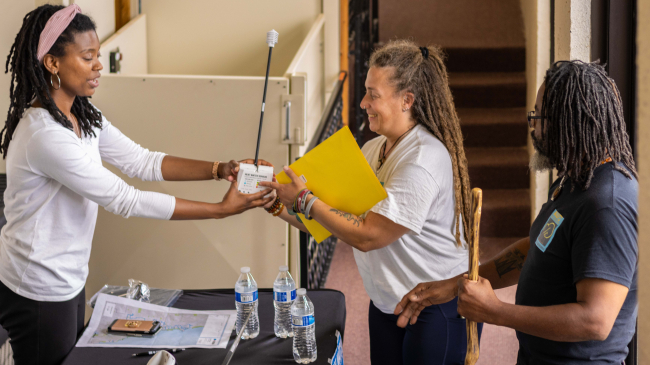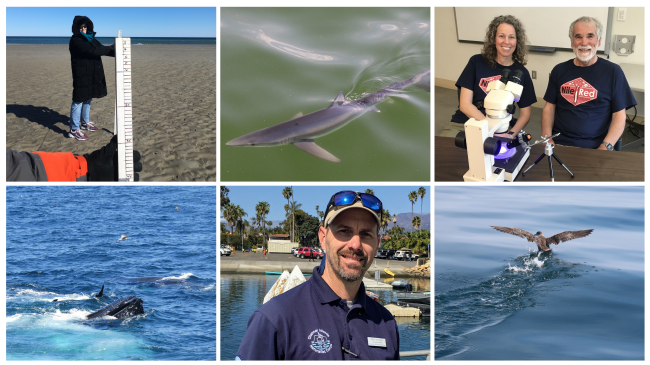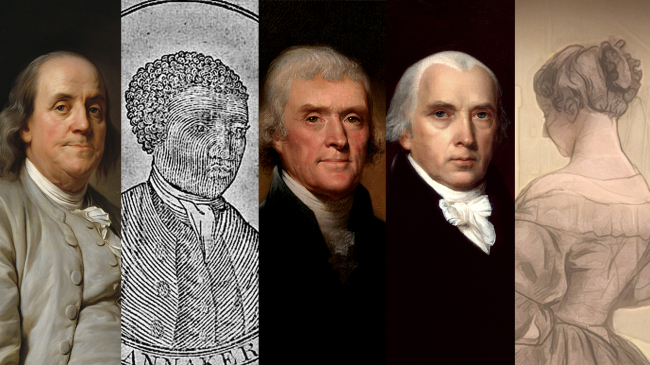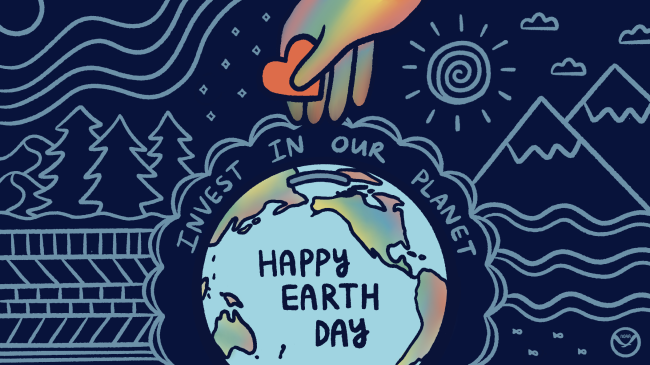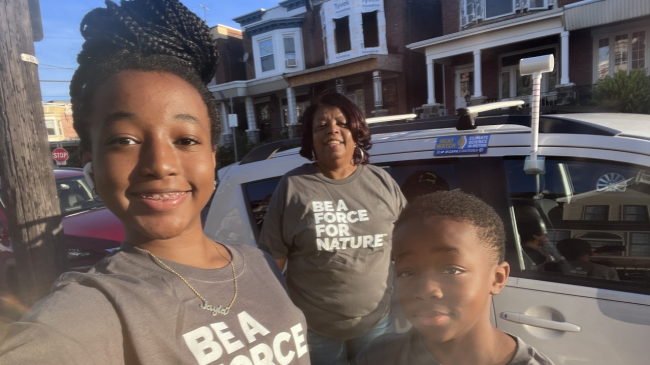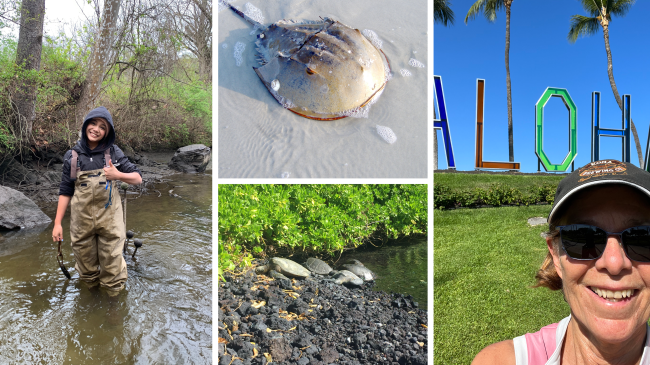In citizen science, the public participates voluntarily in the scientific process to address real-world problems. This may include forming research questions, conducting scientific experiments, collecting and analyzing data, interpreting results, making new discoveries, developing technologies and applications, and solving complex problems. This work can also go by other names such as “community science” or “participatory science.”
NOAA has a rich tradition of supporting such collaborative work, which continues to this day. Volunteers support a range of projects that do everything from improving our country's weather forecasts to protecting and managing marine species to charting the seafloor.
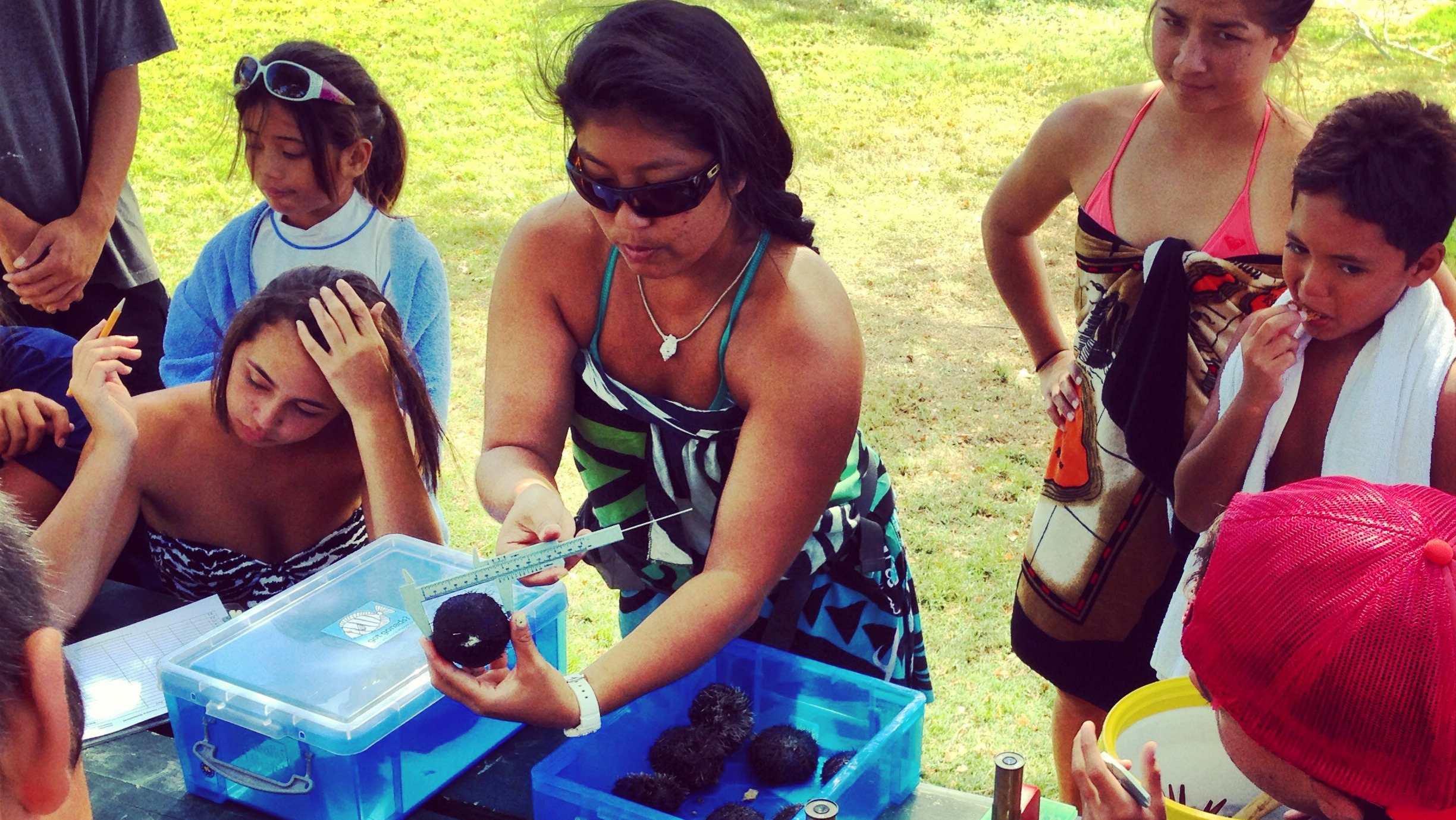
NOAA's Office of Education supports citizen science by helping to manage a community of practice, coordinating a catalog of projects and representing the agency in broader efforts.
NOAA citizen science project attracted over 564,000 participants who contributed 1.3 million volunteer hours in fiscal year 2022 alone. Citizen science was named one of six NOAA science and technology Focus Areas that help our agency achieve transformational advances in mission performance and efficiency. NOAA released its Citizen Science Strategy in 2021 to provide a path to better observe, predict, and understand the environment, and manage and conserve natural resources by harnessing the power of the crowd. In 2023, NOAA released its Citizen Science Action Plan, which outlines the agency's goals and objectives for the program over the next several years.
NOAA Citizen Science Community of Practice
NOAA launched a Citizen Science Community of Practice in 2013. The community relies on grassroots participation from community members throughout the agency. It primarily works to:
- Compile best practices.
- Share resources.
- Maintain a searchable database of NOAA's citizen science projects.
This community has grown steadily to include over 230 members.
If you would like more information on the Community of Practice, please email citizenscience@noaa.gov.
Project catalog
NOAA's Office of Education supports over 60 citizen science projects. You can search through these projects to find information about local and national projects you may be interested in. Please go to CitizenScience.gov catalog of projects (select NOAA in the "View by Agency" field).
Broader efforts
NOAA is an active member of the Federal Community of Practice for Crowdsourcing and Citizen Science. This community helped create a Federal Crowdsourcing and Citizen Science Toolkit. This Toolkit aids federal practitioners in finding resources to develop, implement, and improve citizen science projects. Additionally, NOAA is active within the Association for Advancing Participatory Sciences offsite link, formally known as the Citizen Science Association, which provides a coordination mechanism for the field.
Citizen science in action
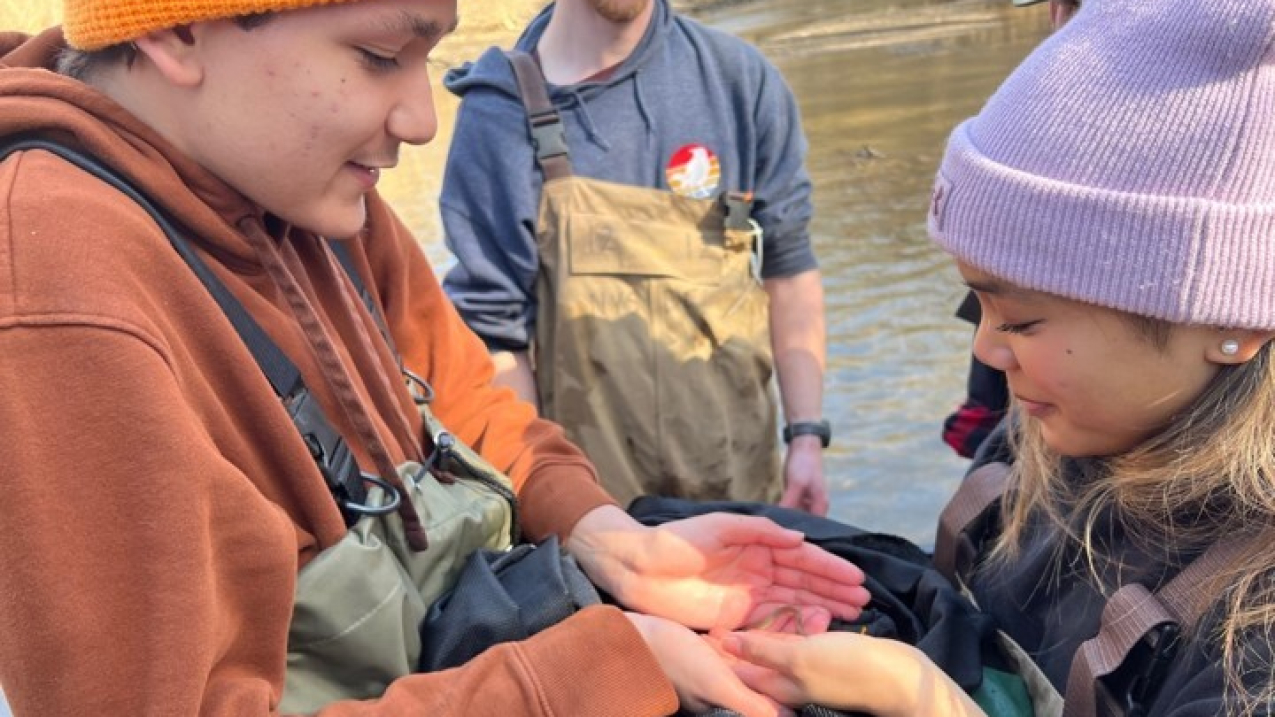
Benjamin Sankar and Eva Lagdamen proudly show off one of the juvenile glass eels they found during a session with Hudson River Eel. (Image credit: Courtesy of Benjamin Sankar)
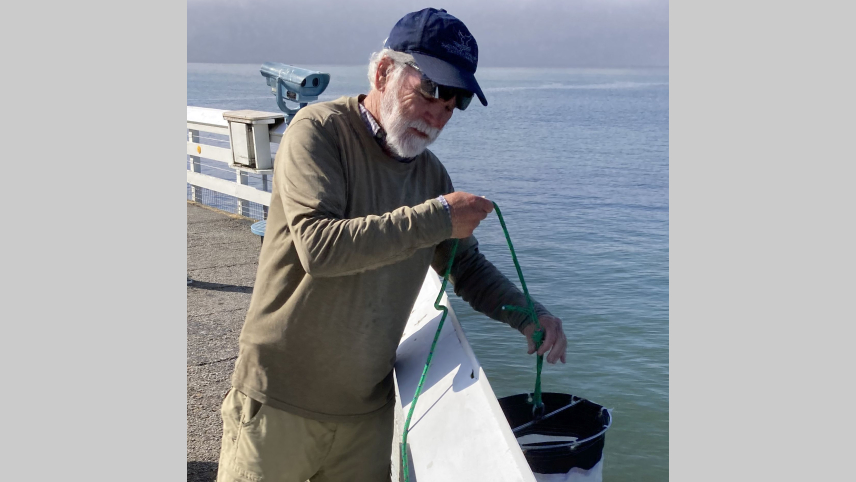
Clive gathers plankton with a net on the Santa Cruz wharf. (Image credit: Courtesy of Clive Bagshaw)
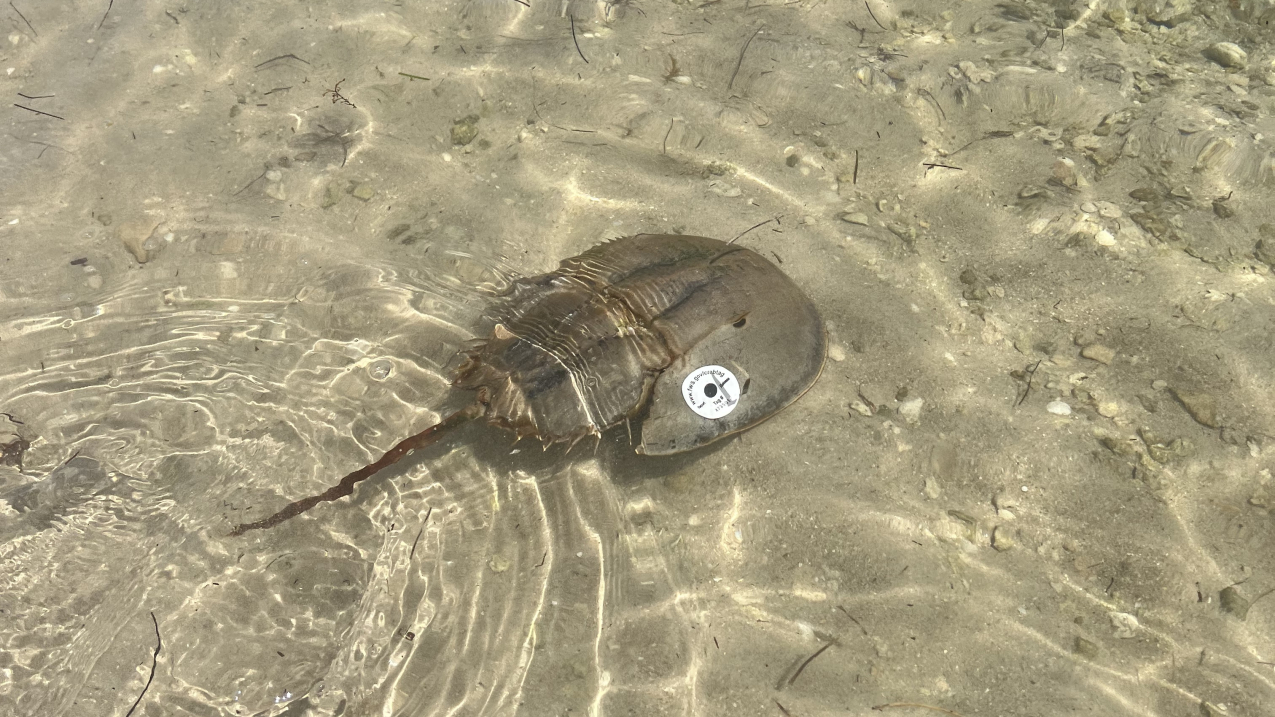
A successfully tagged horseshoe crab swimming back into the ocean after encountering the Florida Horseshoe Crab Watch team. (Image credit: Courtesy of Linda Palewicz)
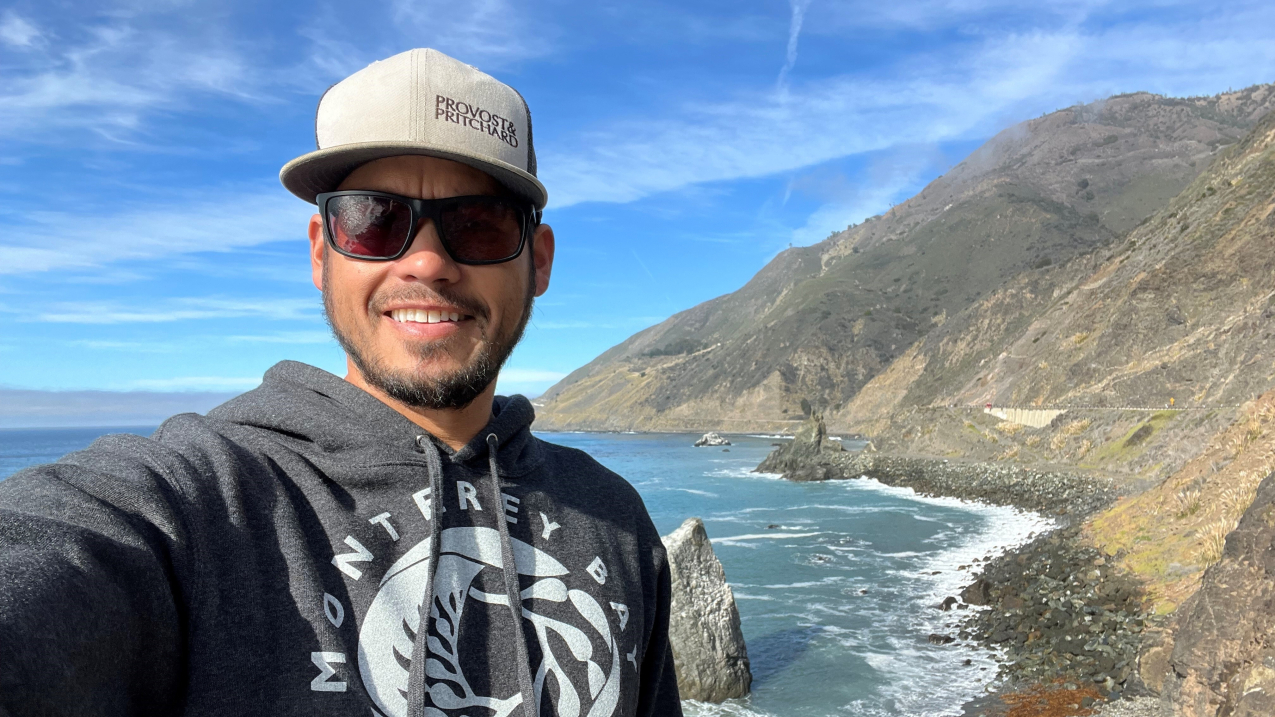
Philip Melcher volunteers with NOAA’s GPS on BenchMarks project. Here, he is enjoying the view near Big Sur State Park in California. (Image credit: Courtesy of Philip Melcher)
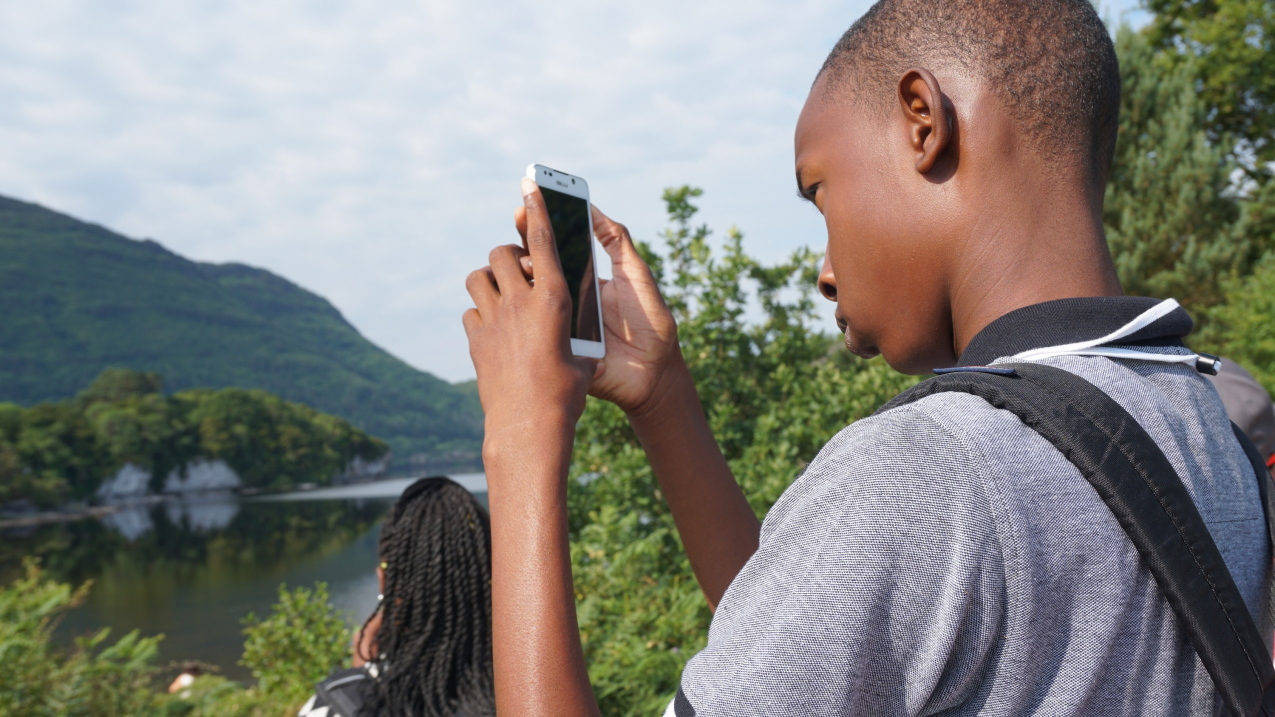
As a citizen scientist, you can make use of The GLOBE Program’s Observer mobile app (free and available for download on iOS and Android devices). You too can observe the world around you as these GLOBE students did during a recent GLOBE Learning Expedition in Killarney, Ireland (2018). (Image credit: The GLOBE Program)
Watch NOAA citizen science webinars
The NOAA Central Library has created a YouTube playlist of webinars about NOAA citizen science efforts.


